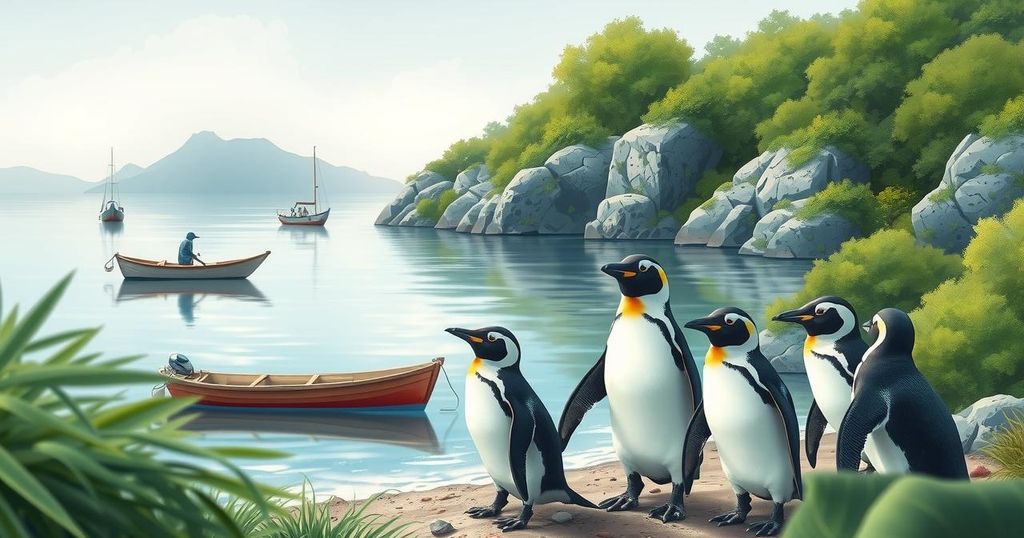The Green Connection welcomed a recent settlement aiding the African Penguin’s protection against extinction as a step toward environmental justice. Despite this progress, they stress the need for addressing broader threats like overfishing and oil exploitation that threaten marine biodiversity and small-scale fishers. Local fishers report alarming changes in fish populations, signaling a crisis that necessitates urgent action for a sustainable future.
In South Africa, The Green Connection has expressed its appreciation for the recent settlement reached in a legal challenge initiated by the Southern African Foundation for the Conservation of Coastal Birds (SANCCOB) and BirdLife South Africa against the Minister of Environment. The organization commends the NGOs involved, hoping this settlement represents a shift towards enhanced protection measures for the African Penguin, an endangered species facing the threat of extinction. However, The Green Connection emphasizes the necessity for substantive actions addressing broader dangers to marine ecosystems, including industrial overfishing and offshore resource extraction, which jeopardize both marine biodiversity and the livelihoods of local communities.
The African Penguin has been reclassified as Critically Endangered by the International Union for Conservation of Nature (IUCN), with its population decreasing dramatically by 76.9% in approximately 20 years, falling from around 27,151 breeding pairs in 2007 to only 8,750 by December 2023. The Green Connection’s Community Outreach Coordinator, Neville van Rooy, notes this decline signals a severe crisis within the oceans. He articulates that industrial overfishing jeopardizes not only the survival of the species but also disrupts the marine food chain, posing significant challenges for small-scale fishers aiming to maintain their economic stability. Additionally, these difficulties are exacerbated by climate change and the encroaching threat of offshore oil and gas development.
Local fishers have voiced serious concerns regarding the changes in fish populations. Priscilla Abrahams from St Helena Bay highlights the troubling results of alterations in marine diets, indicating fewer anchovies in the stomachs of snoek, now replaced with baby hake. Walter Steenkamp, a lifelong fisherman, concurs, observing marked reductions in snoek, indicating a significant transformation of the marine environment.
This legal initiative highlights the government’s responsibility to enforce environmental protections, particularly by designating meaningful no-fishing areas surrounding critical penguin nesting sites. The Biodiversity Law Clinic, representing the applicants, indicates that an international expert panel has evaluated scientific data to advise the Minister on the situation since 2008.
The Green Connection strongly supports SANCCOB and BirdLife South Africa’s legal efforts, viewing the protection of the African Penguin as integral to safeguarding the rights of small-scale fishers and coastal communities. Although this victory is a positive development, the organization stresses that the fight for environmental and human rights remains ongoing. Urgent measures to address the climate crisis stemming from industrial activities are essential due to their ramifications on biodiversity and local livelihoods. Furthermore, it is crucial for South African leaders to prioritize the welfare of people and the environment over commercial interests, ensuring a sustainable future for all stakeholders involved.
In conclusion, the recent settlement regarding the protection of the African Penguin represents a significant milestone towards environmental justice in South Africa. However, proactive measures must be implemented to tackle the pervasive threats posed by industrial practices. The plight of the African Penguin underscores broader issues affecting marine biodiversity and the communities that rely on healthy oceans. It is imperative for leaders to take substantive action to uphold both environmental and social rights for a sustainable future.
Original Source: allafrica.com






